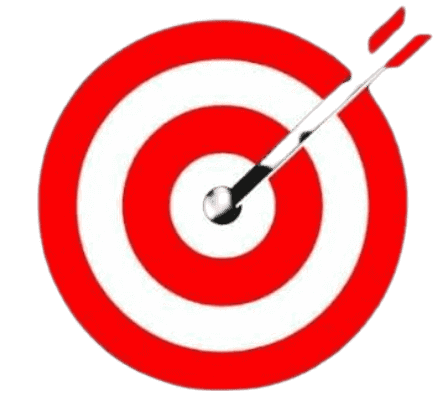How to Start a Career in Sports: A Comprehensive Guide
The global sports industry is one of the fastest-growing and most exciting sectors in the world. With a valuation exceeding $600 billion and a fanbase of billions, it’s no surprise that many individuals dream of turning their passion for sports into a fulfilling career. Whether you’re an aspiring athlete, a future coach, a sports marketer, or someone interested in sports science, the path to a successful career in sports is diverse, dynamic, and full of opportunities

This comprehensive guide will walk you through the key steps, skills, and strategies needed to start a career in sports, regardless of your chosen specialization.
1. Understanding the Sports Industry Landscape
Before you dive into the field, it’s crucial to understand what a career in sports entails. The sports industry is much more than just playing games on the field. It comprises several sectors and professions, including:
-
Professional and Amateur Athletes
-
Coaches and Trainers
-
Sports Medicine and Therapy
-
Sports Marketing and Media
-
Sports Management and Administration
-
Event and Facility Management
-
Analytics and Performance Science
-
Sports Law and Compliance
Each of these categories has its own educational and experience requirements, offering a wide range of career paths based on your interests and strengths.
2. Identifying Your Passion and Strengths
The first step in starting any career is self-assessment. Ask yourself:
-
Do I want to be on the field or behind the scenes?
-
Am I passionate about physical performance, or more interested in management or media?
-
Do I enjoy analyzing data and stats, or would I rather interact directly with athletes?
For example, if you’re fascinated by how athletes improve performance, you might thrive as a strength and conditioning coach or a sports psychologist. If you’re a social media whiz who loves connecting with fans, a career in sports marketing might be ideal.
Knowing your strengths helps you choose a path that not only sustains your interest but also plays to your skills.
3. Pursue Relevant Education and Training
A. Formal Education
While not all roles in sports require a degree, many positions do benefit from formal training. Depending on your chosen path, consider degrees in:
-
Sports Science
-
Kinesiology
-
Sports Management
-
Physical Education
-
Journalism (for media roles)
-
Business Administration (for marketing and management roles)
-
Biomechanics or Exercise Physiology
For coaching or therapy-related careers, you may need advanced degrees or certifications, such as:
-
Master’s in Sports Psychology
-
Doctor of Physical Therapy (DPT)
-
Certified Strength and Conditioning Specialist (CSCS)
B. Certifications and Courses
Some roles require specific certifications, such as:
-
Coaching Licenses (varies by sport and level)
-
CPR/First Aid Certifications
-
Nutrition or Fitness Trainer Certificates
-
Broadcasting or Communication Courses for media roles
Online platforms like Coursera, edX, and even sports federations offer affordable courses that can give you an edge.
4. Gain Practical Experience
Education provides the foundation, but experience opens the doors.
A. Internships
Seek internships with:
-
Sports teams (professional, semi-professional, college, or even high school)
-
Sports marketing agencies
-
Local gyms or recreation centers
-
Media outlets covering sports
Internships help you build real-world skills, understand the day-to-day of your role, and create invaluable industry connections.
B. Volunteering
If internships aren’t available, volunteering can be just as beneficial. Volunteer at local tournaments, community leagues, charity runs, or school sports programs. These roles often allow you to wear multiple hats, providing a comprehensive view of sports operations.
C. Entry-Level Jobs
Don’t shy away from starting small. Entry-level positions such as an assistant coach, fitness trainer, social media assistant, or ticketing staff can serve as stepping stones to your dream job.
5. Network Within the Industry
In the sports world, who you know often matters as much as what you know.
A. Attend Industry Events
Attend conferences, job fairs, and expos such as:
-
SportAccord Convention
-
Leaders Week
-
National Sports Forum
These events are filled with industry professionals, recruiters, and potential mentors.
B. Join Professional Associations
Joining groups like:
-
National Association of Sports Officials (NASO)
-
North American Society for Sport Management (NASSM)
-
National Strength and Conditioning Association (NSCA)
…can give you access to resources, job boards, and exclusive networking opportunities.
C. Use Social Media Professionally
LinkedIn is a powerful tool for aspiring sports professionals. Follow industry leaders, engage in conversations, share relevant content, and stay informed about openings.
6. Develop Key Skills for Success
Regardless of your specialization, certain soft and hard skills are essential in the sports industry.
A. Communication
Clear and effective communication is crucial for coaches, marketers, journalists, and managers alike. You must be able to relay ideas, give feedback, and inspire others.
B. Teamwork
Most roles in sports require collaboration, whether it’s coordinating an event, training athletes, or covering a game.
C. Time Management
Games, seasons, deadlines—everything in sports is on a schedule. Efficient time management ensures you meet your goals and support others in doing the same.
D. Resilience and Adaptability
The sports world is fast-paced and often unpredictable. Injuries, losses, or last-minute changes are common. You must be able to adapt, stay calm under pressure, and bounce back from setbacks.
E. Technical Skills
Depending on your role, you might also need:
-
Video Editing and Content Creation Tools
-
CRM and Marketing Platforms
-
Statistical Analysis Software (e.g., SPSS, Tableau, R)
-
Project Management Tools (e.g., Trello, Asana)
7. Build a Strong Personal Brand
Whether you’re an athlete or a behind-the-scenes professional, your personal brand can significantly impact your career opportunities.
A. Online Portfolio
Create a personal website or blog where you showcase:
-
Case studies or projects
-
Writing samples
-
Video highlights
-
Testimonials
-
Resume and certifications
B. Social Media Presence
Stay professional and consistent across platforms. Share your insights, celebrate your achievements, and engage with relevant communities.
C. Thought Leadership
Start a podcast, write articles, or host webinars. Becoming a thought leader in your niche can open doors to speaking engagements, collaborations, and job offers.
8. Stay Updated and Continue Learning
The sports industry is continuously evolving—thanks to technology, fan expectations, and global events. Staying current is vital.
A. Read Industry Publications
Follow media outlets such as:
-
Sports Business Journal
-
ESPN Sports Science
-
Bleacher Report
-
The Athletic
B. Take Continuing Education Courses
Whether it’s learning about wearable fitness tech, new training techniques, or trends in sports marketing, continuous learning makes you more competitive.
9. Consider Specialized Career Paths
Let’s explore a few specific paths and what they require:
A. Athlete
-
Requires exceptional physical ability and consistent training
-
Work with agents, coaches, and physiotherapists
-
Prepare for a short career span; plan for post-retirement roles
B. Coach or Trainer
-
Requires certifications, understanding of athlete development
-
Often starts at local or youth levels and builds upward
-
Needs strong communication and motivational skills
C. Sports Management
-
Ideal for organizers and business-minded individuals
-
Involves managing teams, events, sponsorships, and facilities
-
Requires a degree in business or sports management
D. Sports Journalism and Broadcasting
-
Involves reporting, commentary, content creation
-
Requires writing, on-camera presence, and storytelling ability
-
Build a demo reel or portfolio early
E. Sports Medicine and Therapy
-
Includes roles like physiotherapist, athletic trainer, or nutritionist
-
Requires science-based education and certifications
-
Often works directly with teams or clinics
10. Explore Opportunities Globally
The love for sports is universal. Consider international opportunities in:
-
Europe – especially for football/soccer careers
-
North America – big on basketball, baseball, hockey, and football
-
Australia and New Zealand – cricket, rugby, and adventure sports
-
Asia – rapidly growing esports and sports marketing sectors
Working abroad can broaden your experience and make you more competitive.
11. Be Patient and Persistent
Breaking into the sports industry can take time. It’s a competitive field, and many roles require proving yourself first. Expect to:
-
Start in smaller roles and work your way up
-
Face rejections and learn from them
-
Constantly refine your skills and network
Persistence often separates those who make it from those who don’t.
12.Turning Passion into Profession
Starting a career in sports is more accessible than ever, thanks to technology, education, and global connectivity. While it’s a challenging field that demands hard work and resilience, it also offers the chance to work in a space you genuinely love.
No matter your background or starting point, there is room for you in the sports industry—on the field, behind the scenes, or somewhere in between.
By following the steps outlined in this guide—educating yourself, gaining experience, building your brand, and staying adaptable—you can transform your passion for sports into a lasting and fulfilling career.
